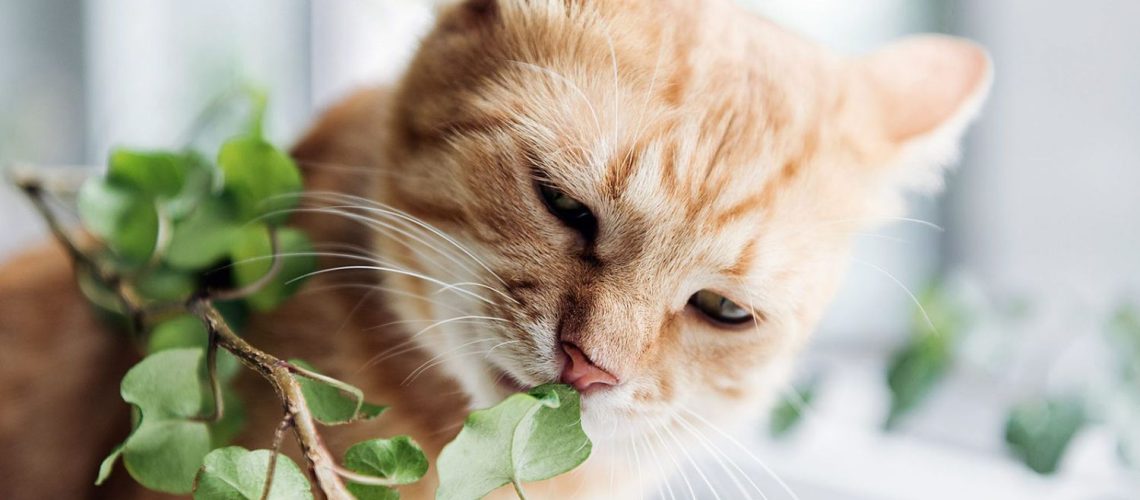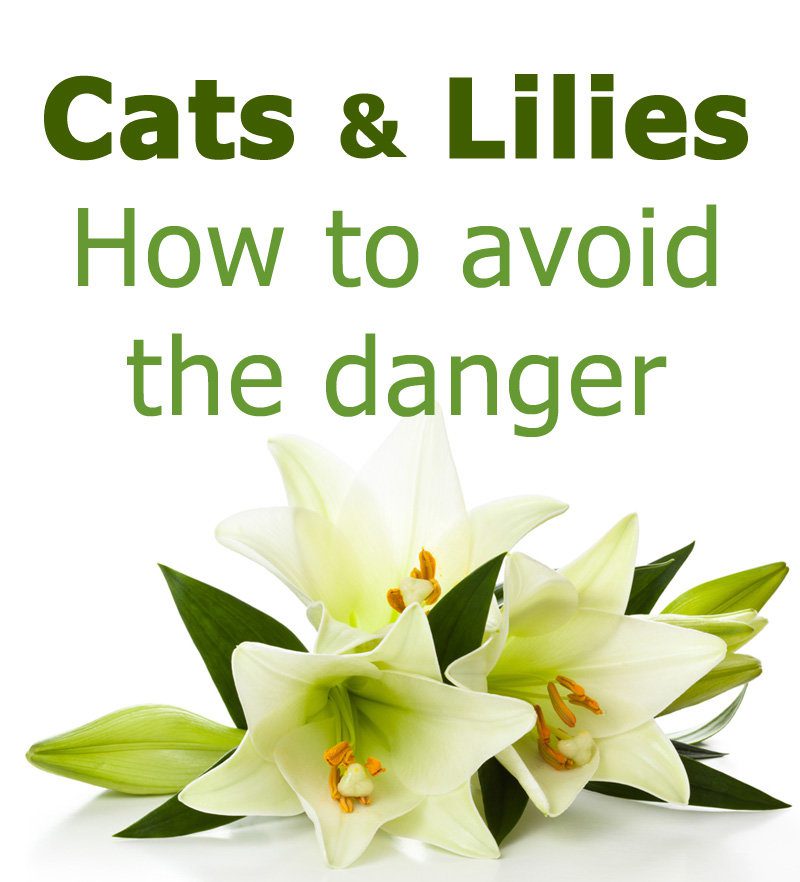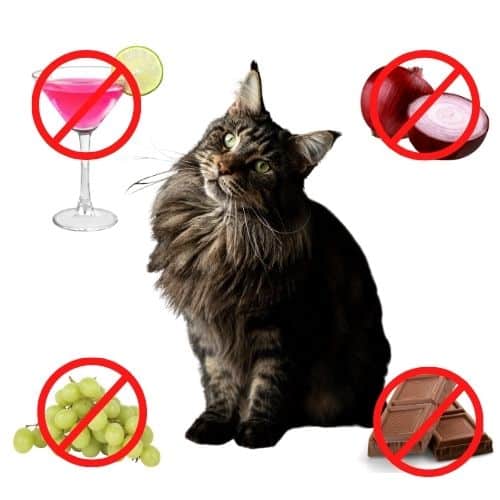Key Takeaways:
- Some garden plants can be toxic to cats and should be avoided to keep them safe and healthy.
- Lilies are highly toxic to cats and can cause kidney failure if ingested, so they should never be planted in a cat-friendly garden.
- Other common plants like tulips, daffodils, and azaleas can also be harmful to cats if ingested and should be kept away from areas accessible to them.
- It is essential to research and identify all the plants in your garden to ensure that none of them pose a threat to your feline friend.
- If you suspect your cat has ingested a toxic plant, it is crucial to contact your veterinarian immediately for guidance and potential treatment.
Are you a cat lover who also enjoys gardening? If so, it's crucial to be aware of the garden plants that could potentially harm your furry friend. While cats are curious creatures, some plants can pose a threat to their health and well-being. In this article, we will explore the garden plants your cat should steer clear of and why understanding this topic is essential for any cat owner. By delving into this subject, you'll not only protect your beloved pet but also create a safe and enjoyable environment for them to explore. So let's dive in and discover which plants to avoid in your garden!
Garden Plants that Can Harm Cats
Cats are curious creatures and love to explore their surroundings, including the garden. However, as cat owners, it's important to be aware that some garden plants can be harmful to our feline friends. Certain plants contain toxins that can cause various health issues if ingested by cats. These toxins can affect their digestive system, nervous system, or even lead to organ failure.
Some common garden plants that are toxic to cats include lilies, azaleas, and tulips. It's crucial to identify these plants in your garden and take necessary precautions to keep your cat away from them. By doing so, you can ensure the safety and well-being of your beloved pet.
The Importance of Cats Avoiding Certain Garden Plants
Avoiding certain garden plants is vital for the health and safety of our cats. Cats have a natural instinct to explore their environment and may be tempted to chew on or ingest plants while playing in the garden. Unfortunately, many common garden plants contain substances that are toxic to cats.
Ingesting these toxic plants can lead to a range of symptoms in cats, such as vomiting, diarrhea, drooling, difficulty breathing, or even seizures. In severe cases, it can result in life-threatening conditions requiring immediate veterinary attention. Therefore, it is crucial for cat owners to be aware of the potential dangers and take steps to prevent their pets from coming into contact with harmful garden plants.
How Garden Plants Can Affect a Cat's Health
Garden plants can affect a cat's health in several ways. Some plants contain chemicals that are toxic when ingested by cats. These chemicals can disrupt the normal functioning of a cat's body systems and lead to various health issues.
For example:
Lilies
Lilies are beautiful flowers often found in gardens, but they can be extremely toxic to cats. Ingesting any part of a lily plant, including the leaves, petals, or even the pollen, can cause severe kidney damage in cats. Signs of lily poisoning in cats include vomiting, loss of appetite, lethargy, and increased thirst.
Azaleas
Azaleas are popular flowering shrubs that contain toxins called grayanotoxins. Ingesting any part of an azalea plant can lead to symptoms such as drooling, vomiting, diarrhea, weakness, and even collapse. These toxins affect a cat's cardiovascular system and can be life-threatening if not treated promptly.
Tulips
Tulips are vibrant spring flowers that can pose a risk to cats if ingested. The bulbs of tulip plants contain toxins called glycosides which can cause gastrointestinal irritation in cats. Symptoms may include drooling, vomiting, diarrhea, and abdominal pain.
It is important to note that these are just a few examples of toxic garden plants for cats. There are many other plants that can also be harmful if ingested by our feline friends.
Three Common Toxic Garden Plants for Cats
Lilies
Lilies are beautiful flowers commonly found in gardens, but they can be extremely toxic to cats. All parts of the lily plant, including the petals, leaves, and even the pollen, can cause severe kidney damage if ingested by a cat. Some common types of lilies that pose a threat to cats include Easter lilies, Tiger lilies, and Daylilies. It is crucial to keep these plants out of your garden or any area accessible to your feline friend.
Azaleas
Azaleas are another popular garden plant that can be harmful to cats. These flowering shrubs contain toxins called grayanotoxins that can cause vomiting, diarrhea, and even cardiovascular problems in cats if ingested. Azaleas come in various colors and are often used as decorative plants in gardens or flower beds. If you have a cat, it's best to opt for safer alternatives instead of planting azaleas.
Tulips
Tulips may add vibrant colors to your garden, but they can be dangerous for your feline companion. The bulbs of tulip plants contain toxins called tulipalin A and B which can cause gastrointestinal irritation and drooling if consumed by cats. While the entire plant is not highly toxic like lilies or azaleas, it's still important to prevent your cat from nibbling on tulip bulbs or leaves.
Signs Your Cat May Have Ingested a Toxic Plant
It's essential to be aware of the signs that indicate your cat may have ingested a toxic plant:
Vomiting and Diarrhea
If you notice your cat vomiting or experiencing frequent episodes of diarrhea, it could be an indication that they have ingested a toxic plant. These symptoms may occur shortly after the ingestion or within a few hours, depending on the plant and the amount consumed.
Loss of Appetite
A sudden loss of appetite in your cat can be a red flag that they have ingested something harmful. Toxic plants can cause gastrointestinal discomfort, leading to a decreased desire to eat. If your cat shows a lack of interest in their food for more than 24 hours, it's crucial to seek veterinary attention.
Behavioral Changes
Cats who have consumed toxic plants may exhibit behavioral changes such as lethargy, restlessness, or excessive salivation. They may also display signs of discomfort or pain, such as vocalization or hiding. If you notice any unusual behavior in your cat, it's important to consider the possibility of plant poisoning and consult with a veterinarian.
Safe Alternatives to Harmful Garden Plants for Cats
If you want to create an inviting garden while keeping your feline friend safe, here are some safe alternatives to consider:
Catnip (Nepeta cataria)
Catnip is a popular herb among cats that can provide them with entertainment and stimulation. It is non-toxic and safe for cats to consume in moderate amounts. You can grow catnip in your garden or purchase dried catnip toys for your furry companion.
Mint (Mentha spp.)
Mint plants like spearmint or peppermint are not only safe for cats but also have a pleasant aroma that humans enjoy. You can grow mint in pots or designated areas of your garden where your cat can sniff and explore without any harm.
Spider Plant (Chlorophytum comosum)
Spider plants are visually appealing and non-toxic to cats. They can be a great addition to your indoor or outdoor garden. Cats often find the dangling leaves of spider plants intriguing, providing them with mental stimulation.
Precautions to Keep Cats Away from Dangerous Garden Plants
To protect your cat from harmful garden plants, here are some precautions you can take:
Physical Barriers
Create physical barriers around toxic plants using fences, netting, or plant cages. This will prevent your cat from accessing these plants and potentially ingesting them.
Plant Deterrents
Use natural deterrents like citrus peels, coffee grounds, or diluted vinegar sprays around the base of plants to discourage cats from approaching them. Cats dislike the strong scent of these substances and are more likely to stay away.
Provide Safe Alternatives
Offer your cat safe alternatives such as cat grass or designated areas with cat-friendly plants. This will redirect their attention and satisfy their natural curiosity without putting them at risk.
Remember, it's always better to be safe than sorry when it comes to protecting your beloved feline companion from toxic garden plants. By being aware of potential dangers and taking necessary precautions, you can ensure a safe and enjoyable environment for both you and your cat in the garden.
In conclusion, it is important to be aware of the garden plants that can be harmful to our furry friends. By keeping these plants out of reach or choosing cat-friendly alternatives, we can ensure the safety and well-being of our beloved cats in our gardens.
What plants do cats need to stay away from?
Certain types of lilies such as Stargazers, Tiger, Easter, and some daylilies can be extremely harmful to cats. Even a small amount of contact with these lilies, including licking or coming into contact with the pollen or vase water, can lead to severe kidney failure and could potentially be fatal for your cat. Other plants like Lily of the Valley and Marijuana should also be avoided.
What garden vegetable plants are toxic to cats?
Certain vegetables like onions, garlic, chives, leeks, scallions, and shallots are toxic to both dogs and cats, although cats are more vulnerable. These vegetables can cause gastrointestinal irritation, damage to red blood cells, and anemia. It's important to note that eggplants are also toxic for cats.
What is the most toxic plant to cats?
The lily is considered to be the most dangerous plant as all of its parts are toxic. However, there are also other plants and flowers, both inside and outside, that can pose a risk to cats.
How do I keep cats from eating my garden plants?
To keep cats away from your plants, you can create a mixture of water and citrus fruit juice (such as lemon, lime, or orange) and spray it on the plants. This is effective because cats dislike the taste and smell of citrus.
How do I train my cat to leave the plants alone?
Deter Cats from Your Plants Cats have a strong dislike for citrus. By diluting and spraying lemon, lime, or orange juice onto your plant's leaves, you can discourage any feline intrusions. If you prefer not to make your own mixture, Bodhi Dog offers a Bitter Lemon Spray that can be used instead.
What do cats hate to keep them away?
Scents such as citrus or lemon (from orange peels or lemon peels), garlic, ammonia, vinegar, coffee grounds, pipe tobacco, mustard, citronella, and eucalyptus can all repel cats. However, these scents fade over time, so it is important to reapply them regularly.

















